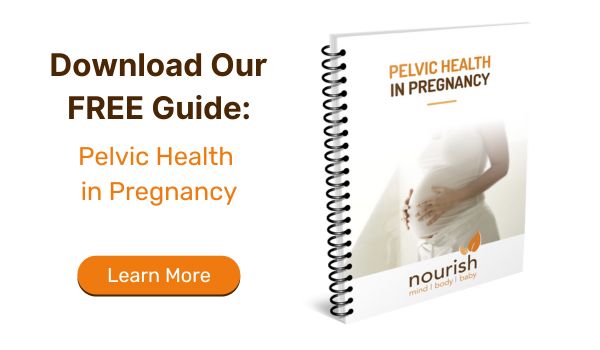Key Point:
- Movements become more distinct as the baby grows bigger and stronger.
- Movements are indicators of the baby's growth, development, health, and overall well-being.
- Mothers should be attentive to changes in movement patterns and seek immediate checks if concerned.
- Change in movement pattern, reduced strength, or concerns should prompt immediate medical attention.
What do my baby's movements mean?
One of the joys of pregnancy is to feel our baby’s movements, though it can seem like a long wait until those first little flutters make themselves clear.
It’s common for pregnant mothers to feel uncertain about how movements feel. Early in the second trimester, most mothers become aware of flutters which at first, are soft and gentle.
Another name for early movements is quickening - a term which is used to describe signs of life.
As the baby gets bigger and stronger, their movements become more distinct.
Are you okay in there?
Movements are a sign of how the baby is growing and developing. They’re also an indicator of the baby’s health and general well-being. Movements tell us a lot about how the baby is going.
It’s important for mothers to be aware of their baby’s movements from when they’re first felt, right up to when their baby is born.

Important Things to Know About Your Baby's Movements
Any change in your baby’s movements should be checked by a maternity care provider. We understand a lot more now about fetal movements and have changed the recommendations around being checked.
If movements reduce, stop or change you need to be checked immediately. Don’t wait until the next day. If your baby’s movements change in their strength, pattern or frequency you both need to be checked.
Keep the number of your maternity care provider handy. Ring if you’re worried and don’t leave calling until later or tomorrow. Time can make all the difference!
When will I start to feel my baby moving?
Generally, mothers feel movements from 16-24 weeks into their pregnancy.
In the early days of feeling your baby’s movements, you might be more aware of them when you’re lying down or sitting quietly. It’s during these times that mothers often feel the first gentle, early flutterings. Concentrating can help.
Some mothers practice their own form of mindfulness when focusing on their baby’s movements.
Some pregnant women say
- Their baby moves more after eating something sweet or cold. A cup of coffee or tea or even munching on chocolate gives their baby a burst of energy. However, don’t use this as a strategy if your baby’s movements have slowed or changed.
- Their baby moves more after she’s eaten.
- Their baby stops moving the minute their partner puts their hand on her belly.
- Their baby responds to an older child’s voice.
- Their baby wakes up and moves around a lot just when she has gone to bed.
- Their baby responds to loud noises, voices or music.
- They can feel their baby hiccoughing.
Did you know?
It’s the pattern of movements which is important to watch for. Your baby is unique and will have their own way of moving around. Movements can cause a mother to wake up - even if she’s been in the deepest of sleeps. A baby’s movements can wake a sleeping partner in the same bed. Big body movements and rolls can be strong enough to transmit through the mattress.
Sometimes it’s possible to identify the baby’s body parts when they’re moving around. A hand, foot or knee can create an impression on the mother’s taut tummy. Some women don’t like the feeling of their baby moving, saying they feel “grossed out” by it and don’t like the way their tummy moves when the baby is moving around.

Common descriptions of baby movements
In the first trimester
- Uncertain – hard to describe
- Like butterflies
- Like wind
- Indigestion
- Fluttering
In the Second Trimester
- Gentle
- Definitely movements
- Tickling my insides
- Reassuring
- Comforting
- Exciting
In the Third Trimester
- Strong
- Definite
- Punching
- Rolling
- Squirming
- Powerful
- Uncomfortable
- Non-stop
- An electric shock to my bladder
But how will I know it’s my baby moving?
In the first trimester, first time mothers can be less confident than women who’ve been pregnant before, that they’re feeling movements. The reason is probably due to experience – what can be interpreted for first timers as a bit of wind is instead, rightly attributed to the baby.
Fetal movements match the size of the baby and their development. It’s not until the baby is big enough to be in contact with the mother’s uterus that she can feel her baby moving.
Until the 12th week of pregnancy, the uterus is still within a mother’s bony pelvis. By 20 weeks, the top of her uterus is level with her navel.
Essentially, bigger baby = bigger movements!

Ten Fetal Movement Facts
- As the baby’s legs and arms grow, the mother feels more distinct limb movements.
- Up until the 3rd trimester, babies do somersaults, rolls and whole body flips. Closer to the due date there is not enough room for them to move around so much.
- Babies who are in a breech, (bottom down) position often have their head up under their mother’s ribs.
- When a mother prods or pokes her tummy, their baby may move in response.
- Babies tend to move more at certain times of the day.
- Babies spend long periods of time sleeping.
- Babies go through waking and sleeping cycles.
- Some babies are more energetic than others.
- Sometimes movements can be uncomfortable for a pregnant mother.
- Babies always seem to kick and move around more when their mother has a full bladder.
General Tips About Movements
- Some days, babies move more than on other days. Like us, they have times of being more, or less active. Get checked if you’re worried.
- Check with your maternity care provider if you are worried about anything to do with yourself or your baby. It’s always important to follow your “gut” feeling.
- A change in the pattern of your baby’s movements may be a sign that they are not well.
- Babies continue to move during labour and during birth. It’s not true that babies slow down their movements when they’re due.
When you get checked your doctor or midwife should:
- Check your baby’s heartbeat and do a CTG (cardiotocograph)
- Order an ultrasound
- Order blood tests
- Measure your baby’s growth
You may also be admitted to hospital for monitoring or advised to go to the hospital each day to be checked.
Give you clear information about what you need to watch for and what to do if you’re worried again. Don’t be afraid to ask questions. It’s important to have a clear plan so you feel confident about managing future concerns.
Do I need to keep a kick chart of my baby’s movements?
This depends on your pregnancy and the advice of your maternity care provider. Sometimes women are advised, towards their due date, to keep a record of when they feel their baby moving.
What is important is change. If you feel your baby isn’t moving as much or perhaps as strongly, then you need to be checked immediately.
For more information check:
This article was written for Nourish by Jane Barry – Midwife and Child Health Nurse.
Our Products
-

01. Guide to a Healthy Pregnancy
$55 -

02. Positive Birthing Course
$55 -

03. Infant Feeding Guide
$55 -

04. Baby Sleep Guide - First 12 Months
$55 -

05. Toddler Parenting Course 1 - 3 Years
$55
-
 When to Start Antenatal Classes?
When to Start Antenatal Classes?
Becoming a parent is an incredible milestone, but it comes with a host of changes that can be daunting, especially for first time parents. Antenatal classes are all about offering expectant parents the education they need to make informed decisions, look after their bodies and care for their newborn babies. While you probably already have a long list of things you need to accomplish during your pregnancy, it’s a good idea to make time to attend antenatal classes.
-
 Development Milestones 4-8 Months
Development Milestones 4-8 Months
As they reach the middle of their first year, you'll start to see bigger leaps in their growth and ability!
In this article, we’re going to discuss your baby’s developmental milestones between 4-8 months, and what you can expect along the way.






 When to Start Antenatal Classes?
When to Start Antenatal Classes?
 Development Milestones 4-8 Months
Development Milestones 4-8 Months








